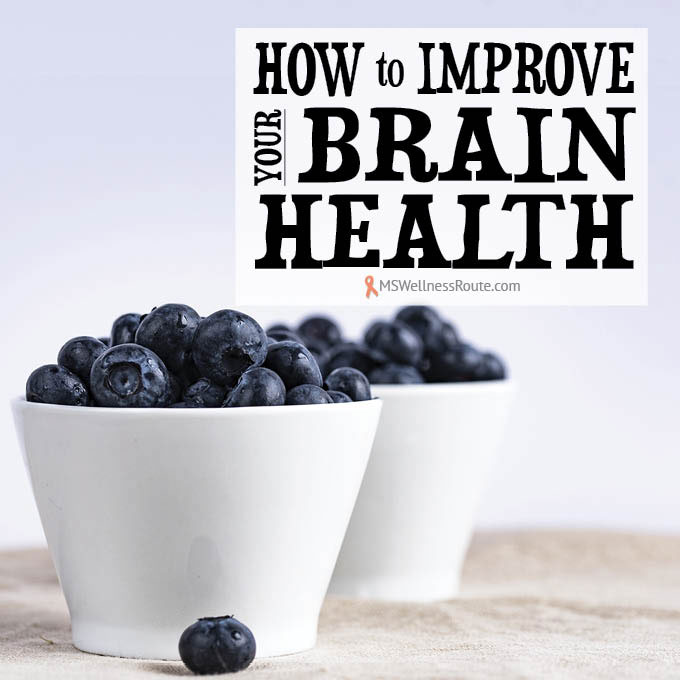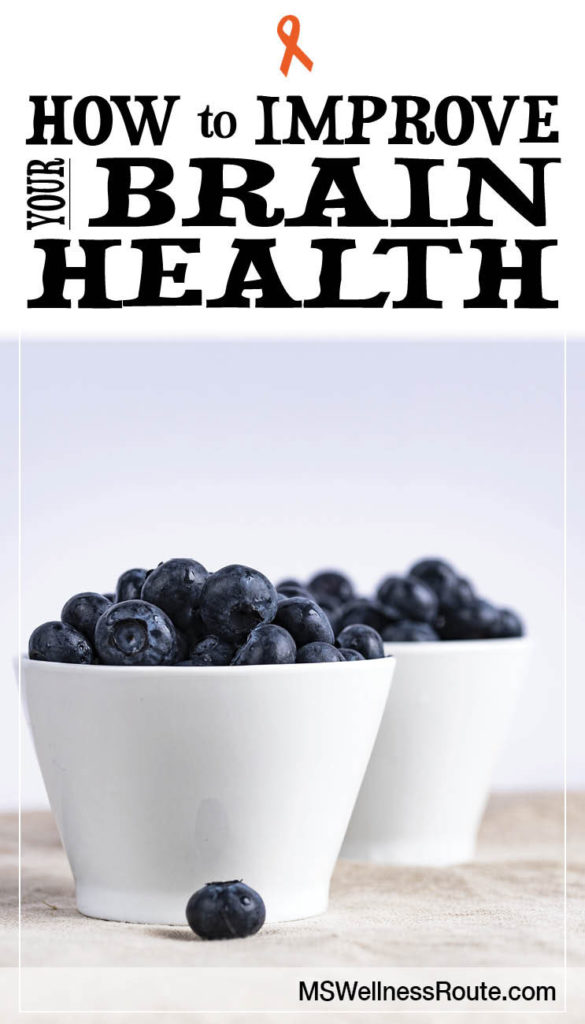Last Updated on January 30, 2025 by Cathy

It is estimated nearly one million Americans are living with multiple sclerosis (MS) and 2.8 million worldwide. I, unfortunately, am one of those numbers. I was only 15 years old when I had my first symptom (optic neuritis) although, I was not diagnosed until years later.
My neurologist at that time had no answers and was no help, this was before any MS drugs were available. He told me to “hope for the best and plan for the worst” and that was it, I did not even have another appointment scheduled. He gave me the name of a book to buy and I left his office not knowing what MS was or what to expect. I just assumed I would end up in a wheelchair eventually.
Today, there is more information and researchers know MS is caused by inflammation that affects the brain, spinal cord, and central nervous symptoms. It is still unknown what exactly causes MS, however, there are four main triggers, and toxins found in food are one of those triggers.
What is missing from our diets?
So what is missing? First, healing foods coupled with good fats help fight inflammation affecting our body and brain. Like heart disease clogged arteries, “bad” fats, refined sugar, and carbohydrates contribute to plaque formation in the brain. These high-level brain functions are impaired for those with MS causing symptoms like:
→ Attention and concentration
→ Information processing
→ Memory
→ Planning and prioritizing
→ Verbal fluency (word-finding)
A nutrient-dense diet, particularly in fruits and vegetables, can provide antioxidants. Antioxidants including vitamins C and E protect the damaging effects of free radicals on the brain and throughout the entire body.
Get FREE Tips on the 6 Top Foods for Brain Health
Foods to Avoid for Brain Health:
Artificial sweeteners (linked to neurological symptoms)
Conventionally raised animal proteins (all high in omega-6 fats)
Dairy products
Refined carbohydrates (white flour, white rice, processed foods)
Refine sugars (dextrose, high fructose corn syrup, sucrose, etc.)
Refined vegetable oils (canola oil, corn oil, safflower oil, soybean oil, etc.)
Shellfish (they are bottom feeders and have higher levels of chemicals and mercury)
Trans fats (hydrogenated and partially hydrogenated)
Tuna (very high in mercury which damages brain cells)
Foods for Brain Health
Fortunately, cognitive decline can be reversed by reducing inflammation. Eat a nutrient-dense diet of vegetables including dark leafy greens, sulfur, also colored vegetables. Here is a list of the top foods for brain health:
Avocados
Rich in vitamins B, C, and K. They protect against blood clots in the brain and strokes. They also help improve cognitive function. Avocados are healthy unsaturated fat and antioxidants. Add them to your smoothies, and salads, or eat them as a snack.
Blueberries
Researchers discovered blueberries help protect the brain from oxidative stress. They have powerful antioxidant properties which help with focus and concentration. It is best to eat organic berries to avoid pesticides, they are good frozen or fresh, toss them into your smoothies as well as salads. (Don’t eat too many in one day due to their sugar content.)
Coconut oil
An excellent fuel source especially for the brain. Furthermore, it’s a natural anti-inflammatory, suppressing cells responsible for inflammation. Include 3-5 tablespoons per day as well as rubbing it on your skin (it will absorb it).
Omega 3
Research shows that omega-3 fatty acids reduce chronic inflammation. Omega-3 essential fatty acids are one of the most important nutrients for your brain health. Foods high in omega-3 are chia seeds, flax seeds, mackerel, salmon, sardines, as well as walnuts. To get omega-3 fats from animal protein, look for labels that say grass-fed, pasture-raised, or wild-caught. Flax seeds can pass through your digestive system, so make sure you ground them first.
Turmeric
Also known as curcumin, it is an antioxidant and a very effective anti-inflammatory. It boosts the regeneration of brain cells and helps with neurological disorders. In India, where turmeric is eaten daily in curries, the risk of developing MS is lower than the risk in the United States. Eat 3 grams or about one teaspoon daily.
Eating Healthy
There is no one special diet that helps everyone with MS, however, eating a diet similar to the Paleo diet has been a huge benefit for many. Since MS is different for each person they will have to modify the diet to fit their own needs. I am sensitive to eggs and tomatoes so I have eliminated those from my diet.
Eat a diet of mostly vegetables including dark-leafy, sulfur, in addition to colored vegetables every day. Avoid refined sugar also eat a diet with lower carbohydrates, both of which harm brain function.
Supplements
Although I have kept my MS in remission for years using food as my medicine. This past year I not only started a Candida diet, I also started seeing a functional medical provider for help reversing the damage of MS from years ago.
He gave me a list of supplements to purchase. Overall I’ve been extremely happy. As a result, the biggest improvement was my heat intolerance disappearing. I was even able to stay outside in 100º F weather without my body shutting down!
Recommended Supplements:
- B Vitamins – supports red blood cell production and nervous system function.
- Vitamin C and Vitamin E – these are antioxidants that scavenge free radicals and can prevent damage.
- Vitamin D/K2 Liquid – both vitamins support a healthy heart, blood vessels, and healthy bones.
- Omega Plus
– promotes a healthy heart and brain function for memory and performance.
Finally, I highly recommend seeing a functional medicine provider in your area to help you with your individual needs!
Get Your Free 6 Top Foods for Brain Health
Get the password for the library with the 6 Top Foods for Brain Health here by filling out this form:
What to remember this pin? Pin it to your favorite Pinterest board!






